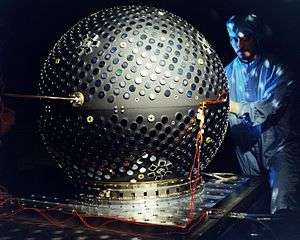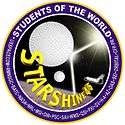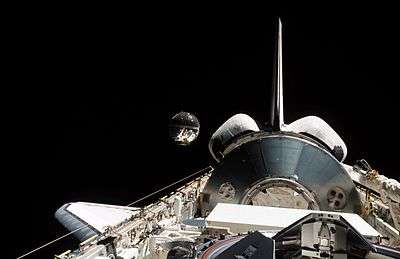STARSHINE (satellite)

The STARSHINE (Student Tracked Atmospheric Research Satellite Heuristic International Networking Experiment) series of three artificial satellites were student participatory missions sponsored by the United States Naval Research Laboratory (NRL).
Satellite description

STARSHINE-1 was a spherical satellite that was fitted with almost nine hundred small mirrors polished by students from around the world. Once launched, a network of over 20,000 students from eighteen countries tracked the satellite by observing sunlight glinting off the mirrors and networked their observations via the Internet. The students used these observations to calculate air drag, solar activity, and other orbit related properties of the satellite.[1]
STARSHINE-2 and -3 had systems added to impart spin to these satellites in an effort to improve the solar-reflected flash rate, as well as a number of laser retroreflectors to introduce the students to satellite laser ranging.[2] The satellites were constructed largely from spare flight hardware.
Launches

The STARSHINE launches were considered launches of opportunity; STARSHINE-1 was launched June 5, 1999 from the Space Shuttle Discovery on STS-96, STARSHINE-3 launched on September 29, 2001 as part of the Kodiak Star Athena I mission, and STARSHINE-2 launched December 5, 2001 from the Space Shuttle Endeavour on STS-108.
Reentry
Starshine 3 reached a fiery end in the Earth's upper atmosphere on January 21, 2003. It had made 7434 revolutions around the Earth since its launch.[3]
See also
- LAGEOS (Laser Geodynamics Satellites)—a series of scientific research satellites designed to provide an orbiting laser ranging benchmark for geodynamical studies of the Earth
- Satellite laser ranging
References
External sources
- Space Sciences: The Navy & Satellites - Starshine 2
- Space Sciences: The Navy & Satellites - Starshine 3